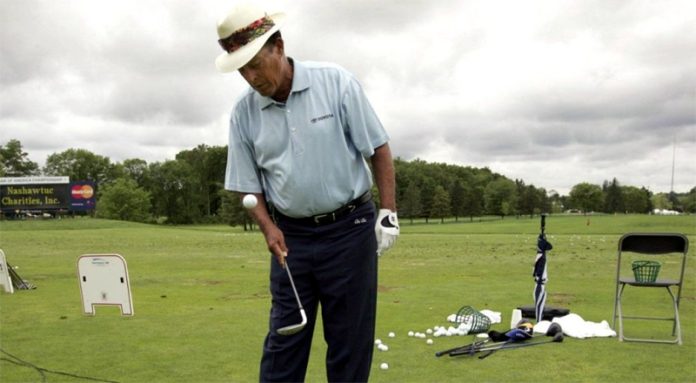LONDON, Aug 9: Juan “Chi Chi” Rodriguez, a Hall of Fame golfer whose antics on the greens during and inspiring life story made him among the sport’s most popular players during a long professional career, died Thursday. He was 88.
Rodriguez’s death was announced by Carmelo Javier Ríos, a senator in Rodriguez’ native Puerto Rico. He didn’t provide a cause of death.
“Chi Chi Rodriguez’s passion for charity and outreach was surpassed only by his incredible talent with a golf club in his hand,” PGA Tour Commissioner Jay Monahan said in a statement. “A vibrant, colorful personality both on and off the golf course, he will be missed dearly by the PGA Tour and those whose lives he touched in his mission to give back. The PGA Tour sends its deepest condolences to the entire Rodriguez family during this difficult time.”
He was born Juan Antonio Rodriguez, the second oldest of six children, in Rio Piedras, Puerto Rico, when it was blanketed with sugar cane fields and where he helped his father with the harvest as a child. The area is now a dense urban landscape, part of San Juan, the capital of the U.S. Island territory.
Rodriguez said he learned to play golf by hitting tin cans with a guava tree stick and then found work as a caddie. He claimed he could shoot a 67 by age 12, according to a biography provided by the Chi Chi Rodriguez Management Group in Stow, Ohio.
He served in the U.S. Army from 1955-57 and joined the PGA Tour in 1960 and won eight times during his 21-year career, playing on one Ryder Cup team.
The first of his eight tour victories came in 1963, when he won the Denver Open. He followed it up with two the next year and continued through 1979 with the Tallahassee Open. He had 22 victories on the Champions Tour from 1985-2002, and had total combined career earnings of more than $7.6 million. He was inducted into the PGA World Golf Hall of Fame in 1992.
Rodriguez was perhaps best known for fairway antics that included twirling his club like a sword, sometimes referred to as his “matador routine,” or doing a celebratory dance, often with a shuffling salsa step, after making a birdie putt. He often imitated fellow players in what he insisted was meant as good-natured fun.
He was hospitalized in October 1998 after experiencing chest pains and reluctantly agreed to see a doctor, who told him he was having a heart attack.
“It scared me for the first time,” Rodriguez recalled in a 1999 interview with The Associated Press. “Jim Anderson (his pilot) drove me to the hospital and a team of doctors were waiting to operate. If I had waited another 10 minutes, the doctor said I would have needed a heart transplant.
“They call it the widow-maker,” he said. “About 50 percent of the people who get this kind of heart attack die. So I beat the odds pretty good.”
After his recovery, he returned to competition for a couple of years but phased out his professional career and devoted more of his time to community and charity activities, such as the Chi Chi Rodriguez Youth Foundation, a charity based in Clearwater, Florida, founded in 1979.
In recent years, he spent most of his time in Puerto Rico, where he was a partner in a golf community project that struggled amid the recession and housing crisis, hosted a talk show on a local radio station for several years, and appeared at various sporting and other events.
He showed up at the 2008 Puerto Rico Open and strolled through the grounds in a black leather coat and dark sunglasses, shaking hands and posing for pictures but playing no golf. “I didn’t want to take a spot away from young men trying to make a living,” he said.
Rodriguez is survived his Iwalani, his wife of nearly 60 years, and Donnette, his wife’s daughter from a previous marriage. (PTI)


